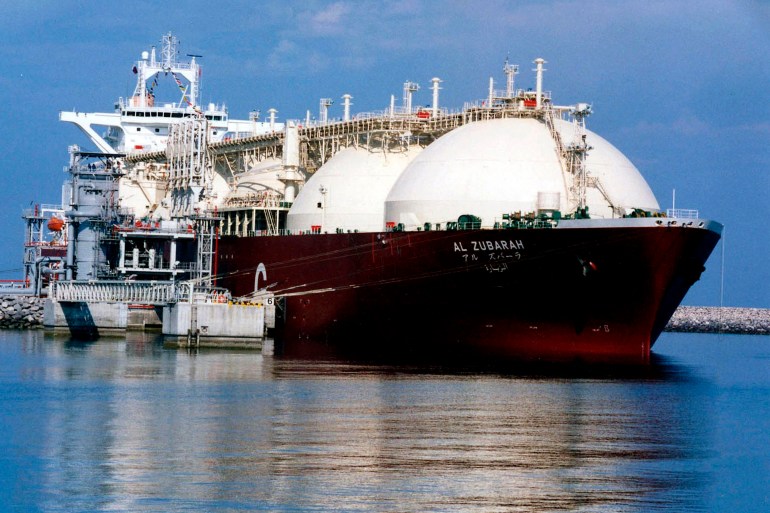Tankers are carrying a combined worth of $2bn in natural gas and slowly sailing around northwest Europe and the Iberian peninsula.

A liquid natural gas (LNG) tanker ship being loaded up at
Raslaffans Sea Port, northern Qatar
Published On 6 Nov 2022
More than 30 tankers holding liquefied natural gas (LNG) are idling just off Europe’s shoreline, the Financial Times reported, as traders are holding out for higher market prices.
According to shipping analytics company Vortexa, the ships are carrying a combined worth of $2bn of LNG, and are sailing slowly around Northwest Europe and the Iberian Peninsula.
“LNG vessels have been queued up outside European LNG receiving terminals, chasing what they expected to be the premium market for this LNG,” Felix Booth, head of LNG at Vortexa, told the newspaper.
“For now these vessels have incentive to hold positions” in anticipation that colder weather will increase demand for energy and in turn drive up prices, he said.
Another 30 ships are sailing across the Atlantic and are expected to join the tankers before the winter, data from Vortexa showed.
LNG tankers in European waters have doubled in the past two months, as European countries filled their storage tanks to near their limits before the winter.
In response to Western sanctions for its invasion of Ukraine, Russia has decreased gas supplies to some European countries.
In turn, these countries bought LNG as a substitution, but unseasonably warm temperatures have led to a reduction in heating demand, which in turn kept storage sites full and prices falling.
State of ‘contango’
Prices for natural gas in Europe have fallen back from their August highs, when they topped 346 euros ($343) per megawatt-hour.
But traders keeping their tankers offshore are counting on prices to increase in the months ahead, as colder weather sets in and lifts heating demand, releasing gas from storage.
This has led to the market being in a state of “contango”, where prices for delivery in the future are trading higher than for immediate delivery, the FT said.
A similar situation involving the oil industry occurred during the height of the coronavirus pandemic, when excess crude resulted in traders keeping their oil on ships as floating storage, waiting for prices to rise again.
No comments:
Post a Comment